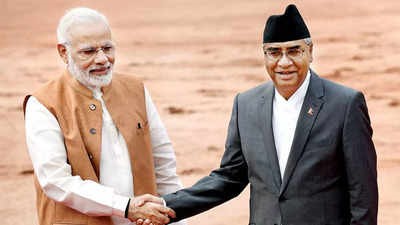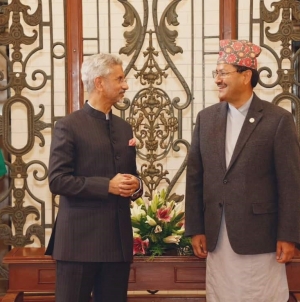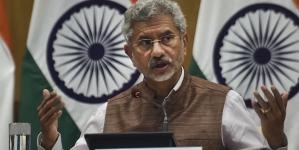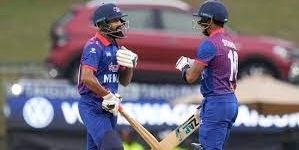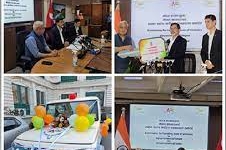-
LONDON: UK’s India Gate To Commemorate Role Of Indian Soldiers From World Wars - 22 hours ago
-
HARARE: Shri Bramha Kumar appointed as the next Ambassador of India to the Republic of Zimbabwe - 1 day ago
-
LONDON: Indian-Origin Principal Wins UK Legal Challenge Over School Prayer Ban - 1 day ago
-
TORONTO: Indian-Origin Doctor Needs ₹ 2 Crore For Legal Fees. Elon Musk Responds - April 22, 2024
-
KINSHASA: India-Democratic Republic of Congo Foreign Office Consultations - April 21, 2024
-
LONDON: UK Court Allows Sale Of Nirav Modi’s Luxury London Apartment - April 21, 2024
-
TEHRAN: Travel advisory for Iran and Israel - April 20, 2024
-
LUXEMBOURG: Shri Saurabh Kumar concurrently accredited as the next Ambassador of India to the Grand Duchy of Luxembourg - April 20, 2024
-
WASHINGTON: Meet Jigar Shah, Indian-American Named In TIME Most Influential List - April 20, 2024
-
LONDON: What Impact Will New UK Family Visa Rule Have On Indians - April 20, 2024
KATHMANDU: Indo-Nepal rail services to start tomorrow
KATHMANDU: PM Narendra Modi and his Nepal counterpart Sher Bahadur Deuba will jointly inaugurate passenger train services between Jayanagar in India and Kurtha in Nepal, a stretch of 34.5km, through videoconferencing from New Delhi’s Hyderabad House on April 2.
East Central Railway (ECR) chief public relations officer (CPRO) Birendra Kumar on Thursday said the launch of the much-awaited rail services between India and Nepal would give further impetus to the bilateral relations between the two countries.
Kumar said the ministry of external affairs (MEA) had sanctioned Rs 784 crore for this ambitious project. “The first and second phases of the project between Jayanagar and Kurtha and Kurtha and Bijalpura, respectively, have already been completed. Work on the third phase between Bijalpura and Bardibas, a stretch of 69km, is in full swing,” he said.
The rail service between Jayanagar and Bijalpura in Nepal had been introduced for the first time in 1937 by the British. It was suspended in 2001 after the devastating floods in Nepal.


















